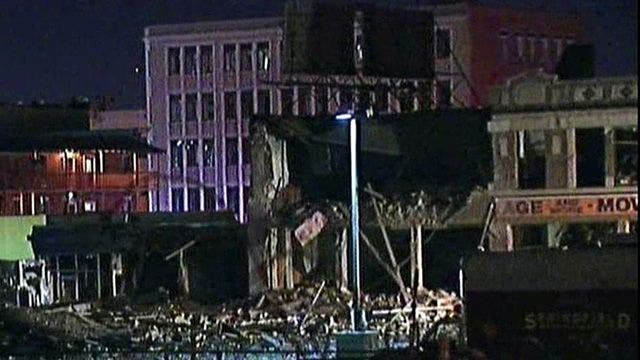What do recent gas explosions in Fitchburg, Springfield, Winthrop and Fall River have to do with the Department of Environmental Protection’s proposal to allow more trash burners in the Bay State?
Yes, gas leaks and garbage incinerators raise public health and safety concerns, but there’s a subtler link between them. Both reflect the commonwealth’s inconsistent commitment to conserve energy and material resources – and a troubling disregard for residents’ pocketbooks. Massachusetts proudly touts its history of innovation, yet paradoxically, even as we lead the nation forward, we’re wasting power and empowering waste.
In the energy arena, our aging gas pipes, for lack of monitoring and repair, are leaking fuel at a rate that exceeds the state’s total efficiency savings. In the waste arena, for lack of enforcement of disposal regulations, huge volumes of paper, cardboard, bottles and cans, electronics, wood and other resources are landfilled or incinerated instead of going to recycling or composting businesses. Action on both fronts could generate new jobs, increase public safety and improve the health of our communities.
While the American Council for an Energy-Efficient Economy’s scorecard has twice ranked Massachusetts No. 1 on efficiency, a 2012 Conservation Law Foundation report titled “Into Thin Air” revealed shocking holes – literal and figurative – in Massachusetts’ gas infrastructure.
The volume of gas lost and unaccounted for is estimated at 1.7 billion cubic feet, which translates into $38.8 million passed on to ratepayers by utility companies. This loss to our wallets is unacceptable, but the threat to public safety, to fuel reserves and to the global climate amounts to a crisis. Pipeline leaks essentially nullify the reductions in costs and greenhouse gas emissions brought about by the commonwealth’s efforts to save energy used in our homes, businesses and institutions statewide.
Improved monitoring, higher quality service standards and targeted repair would create jobs and move us toward a 21st-century infrastructure – and strengthen our claims of effective response to the climate challenge.
Meanwhile, our accelerated consumption-disposal cycle is guzzling fossil fuel and driving climate change as well. Consider the tonnage of reusable or recyclable materials shoveled into our incinerators and landfills daily. Collectively, we’re not doing well at “reduce, reuse, recycle.” This is in part because the administration turns a blind eye to a needless waste of resources and a law that’s already on the books.
Massachusetts regulations prohibit the disposal of 14 categories of recyclable items, including such commonly trashed materials as paper and cardboard. Municipalities, businesses, institutions, haulers and disposal facilities are all subject to waste ban laws. But lack of enforcement means that paper and cardboard make up one quarter of garbage truckloads tipped at our incinerators and landfills. Since 2009, Mass DEP has issued only three fines for violating waste bans.
Incredibly, instead of enforcing these existing regulations – which would conserve landfill space, protect our environment and support our recycling industry – now the Patrick administration is proposing to lift a 22-year-old moratorium on building more waste incinerators – sending waste reduction goals and jobs up in smoke. Worse, the combustion technology that the administration proposes to allow has been tried elsewhere and has failed to produce electricity from garbage on a commercial scale. Like the incinerators we already have, the “new” incinerators already have a dismal track record for emissions, and would compete with recycling programs for plastic, cardboard and paper.
We remind Gov. Patrick of two of his laudable commitments: the Global Warming Solutions Act of 2008, which requires a greenhouse gas emissions reduction of 80 percent by 2050, and the December 2009 commitment to a Solid Waste Master Plan that guides “consumers, businesses and municipalities toward a future of more recycling, and less landfills and incineration.” Getting this work done is more of a marathon than a sprint. Whether we’re talking energy or materials conservation, we want to see these commitments still strong at the finish line of this administration.
Conserving resources may not have the allure of the “magic box” technology that Mass DEP proposes to solve our garbage woes, but the adage “waste not, want not” has passed the test of time – and still warms the hearts of taxpayers.
Joel Wool is energy organizer and Lynne Pledger is solid waste director at Clean Water Action.
Read more:
http://www.patriotledger.com/news/x1433788460/JOEL-WOOL-LYNNE-PLEDGER-Mass-energy-policies-are-wasteful-expensive#ixzz2M0vGYGGY

No comments:
Post a Comment